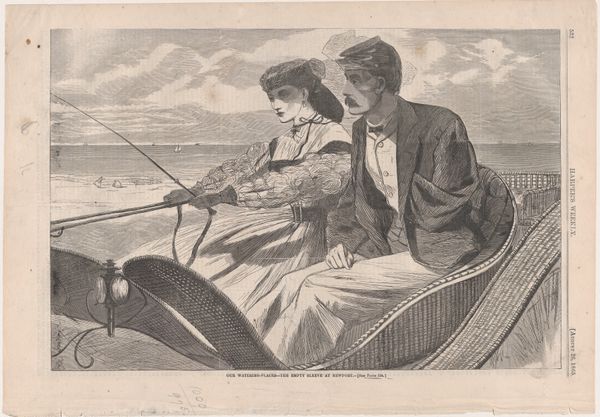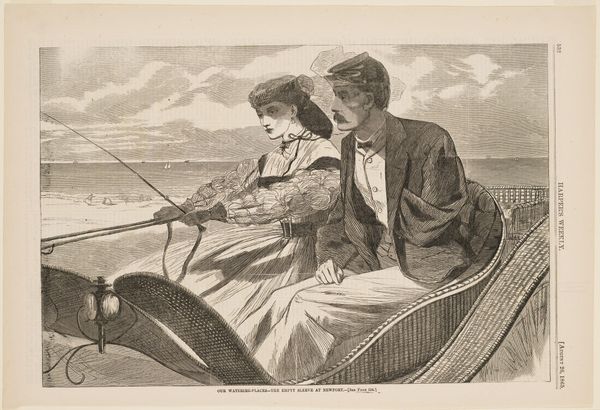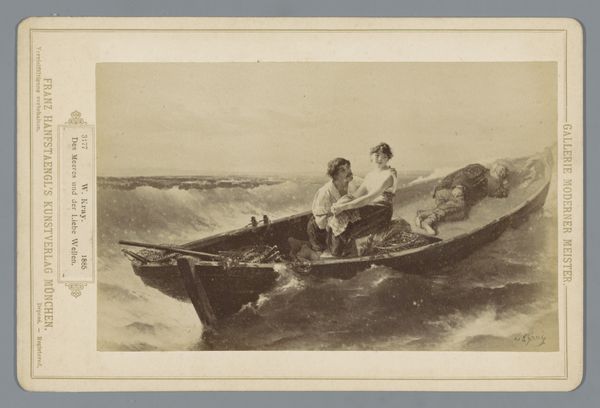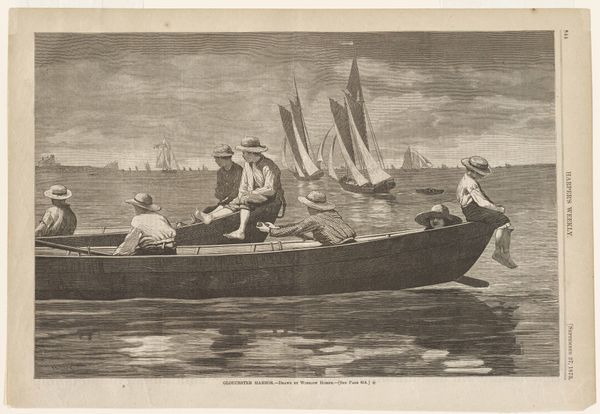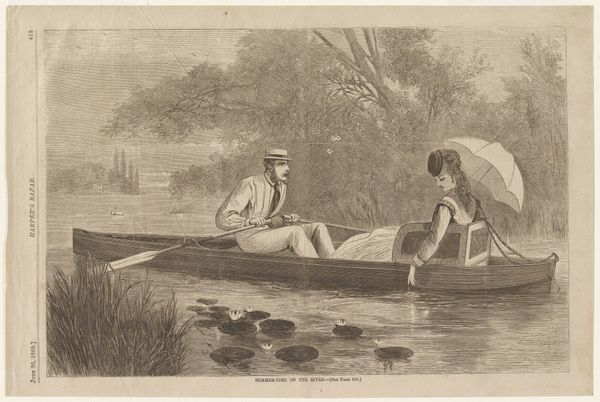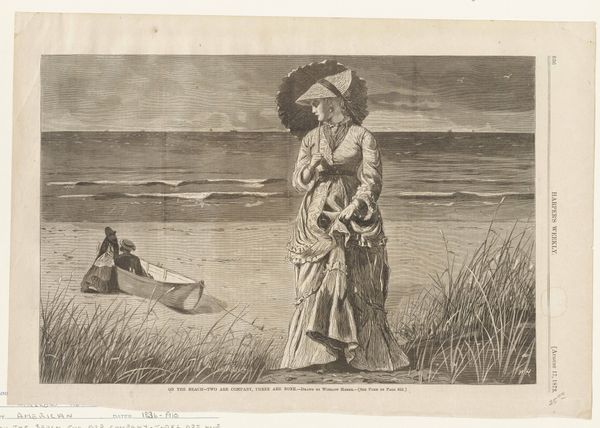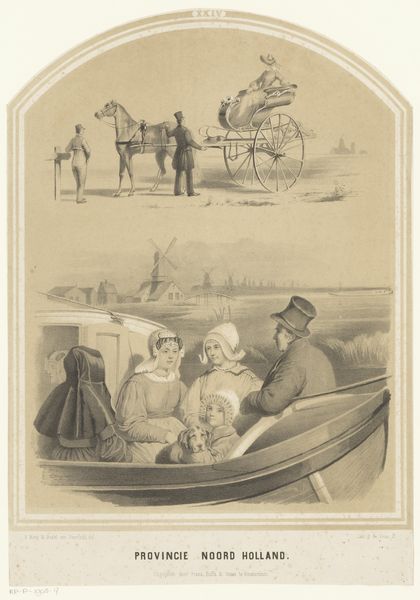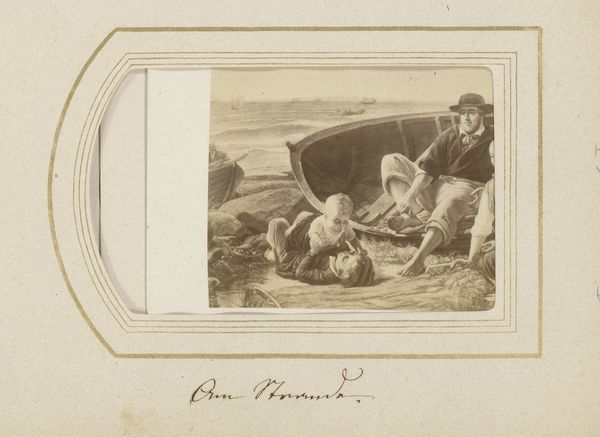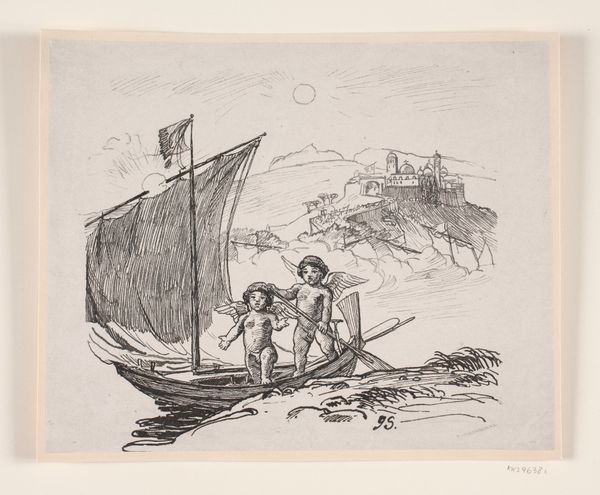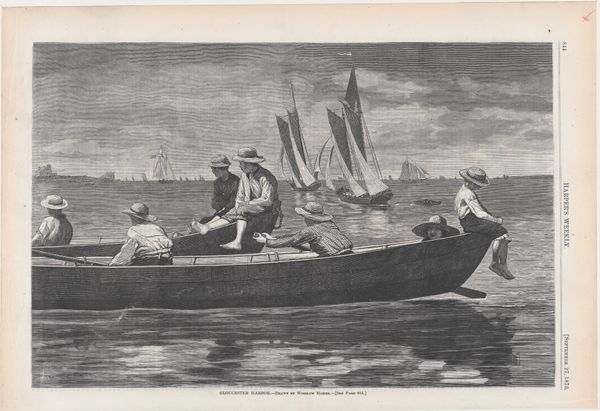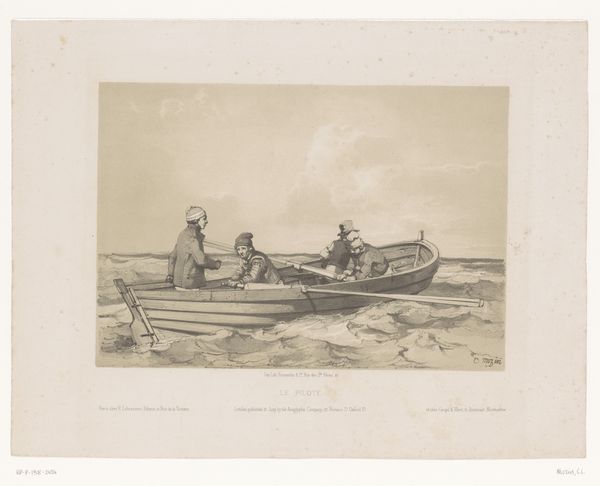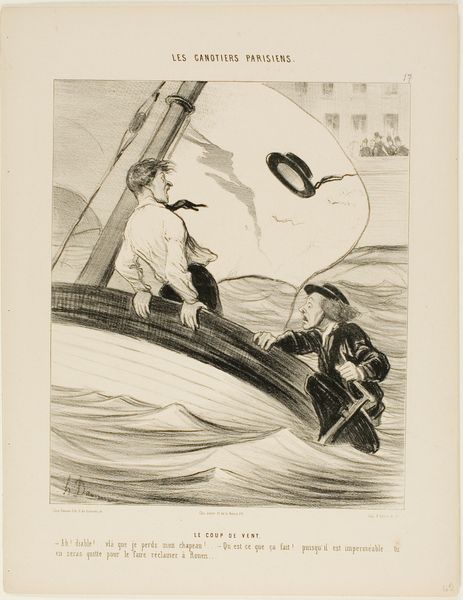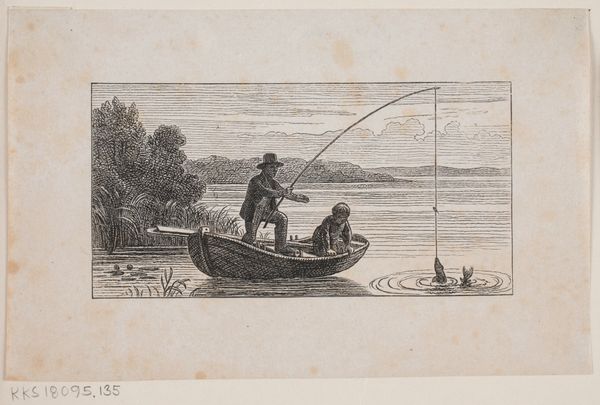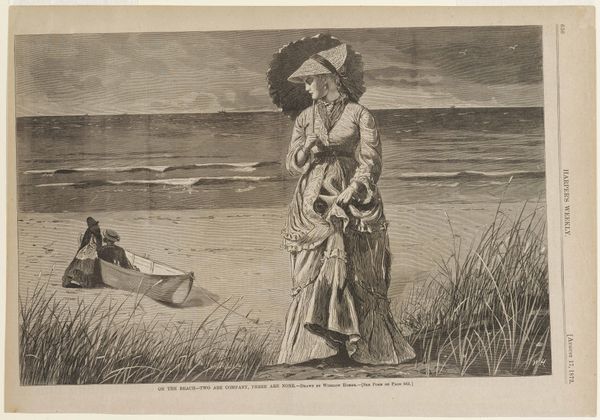
Dimensions: 9 1/4 x 13 3/4 in. (23.5 x 34.9 cm)
Copyright: Public Domain
Curator: Winslow Homer created this poignant wood-engraving, “Our Watering Places – The Empty Sleeve at Newport” in 1865. It's currently housed at the Minneapolis Institute of Art. Editor: It strikes me as terribly melancholic, all those subtle lines and tones. A sort of faded photograph brought to life through meticulous rendering. I feel this overwhelming quietness, almost as if a silent story yearns to be told. Curator: The choice of medium significantly influences our experience, doesn't it? Homer's masterful use of wood engraving underscores the socio-political themes of loss and resilience in the aftermath of the Civil War. It captures the quiet, enduring impact of conflict on individual lives and social relations. Editor: I notice the man’s missing sleeve, so matter of fact. The waves rolling calmly behind him... It’s incredibly somber yet strangely hopeful at the same time, wouldn’t you agree? It is so odd - a moment of leisure charged with absence. A complex mix of relaxation and grief? Curator: Precisely! The "empty sleeve" serves as a stark reminder of the physical and emotional wounds inflicted by war. This work intersects questions of disability, masculinity, and societal reintegration of veterans during the Reconstruction era, doesn’t it? The leisure pursuits of the wealthy contrast sharply with realities facing a war-torn nation. Editor: Oh, without a doubt, like looking through a gauzy curtain between realities. All those tiny detailed engravings really intensify the feeling. It's the artist pointing at reality asking us if we noticed that particular thing and demanding an emotional reaction. Curator: Ultimately, this work functions as both a historical document and a powerful critique of the social inequalities of the time. Editor: A delicate balance between what is seen and what’s deliberately unseen! I can now see so much!
Comments
No comments
Be the first to comment and join the conversation on the ultimate creative platform.
